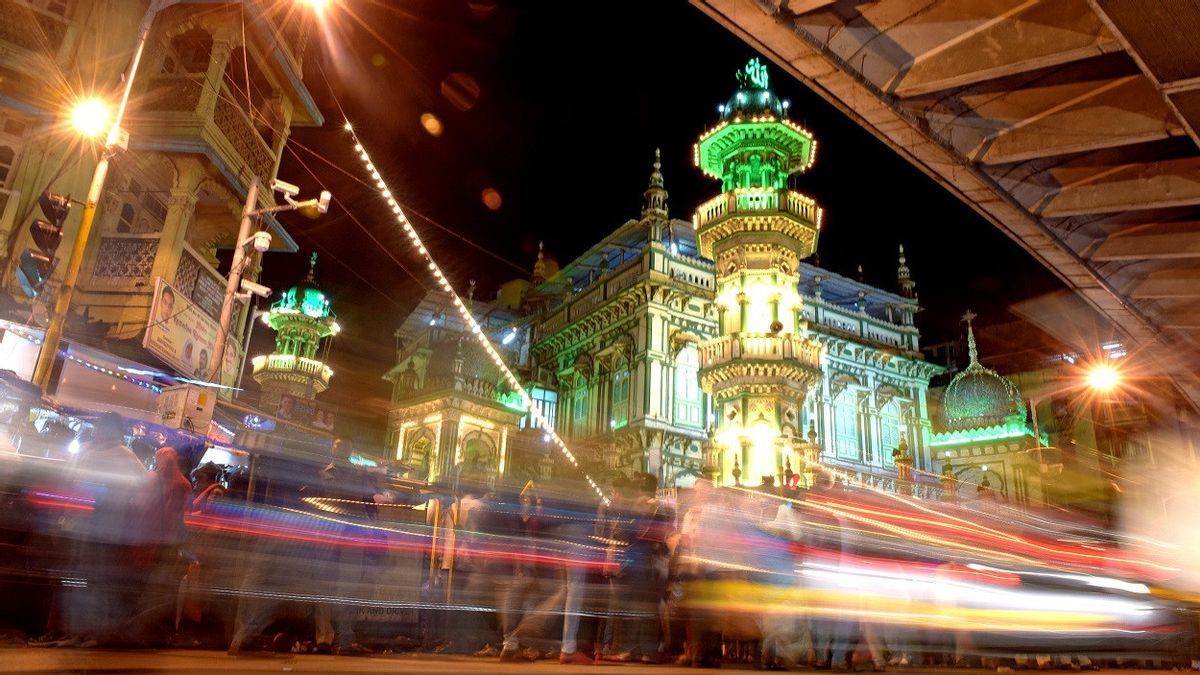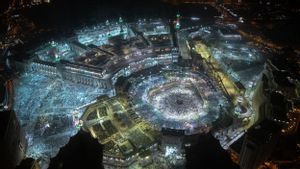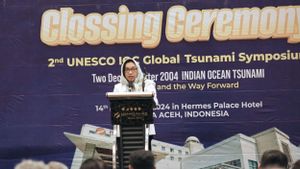JAKARTA - Sitting in an office stocked with books overlooking a gigantic prayer hall, Mohammed Ashfaq Kazi, chief imam of Mumbai's largest mosque, checks the decibel meter mounted on a loudspeaker before he calls out the call to prayer.
"The volume of our call to prayer has become a political issue, but I don't want it to be a communal issue," said Kazi, one of the most influential Islamic scholars in the sprawling metropolis on India's west coast.
As he spoke, he pointed to a loudspeaker mounted on the sand-colored minaret of the Juma Mosque in Mumbai's old commercial district.
Kazi and three other senior clerics from Maharashtra where Mumbai is located said more than 900 mosques in the west of the state had agreed to reduce the volume of the call to prayer, following a complaint from a local Hindu politician.
Raj Thackeray, leader of the regional Hindu party, demanded in April that mosques and other places of worship remain within permissible noise limits. Otherwise, he said his followers would chant Hindu prayers outside the mosque in protest.
Thackeray, whose party has only one seat in the 288-member state assembly, said he was simply insisting that the court's ruling on noise levels be upheld.

"If religion is a private matter, then why are Muslims allowed to use loudspeakers for 365 days (in a year)?" Thackeray told reporters in Mumbai.
"My Hindu brothers, sisters, and mother come together; be one in bringing down these loudspeakers," he said.
Leaders of India's 200 million Muslims see the move, which coincides with Eid al-Fitr, as another attempt by hardline Hindus to undermine their right to freedom of worship and religious expression, with the tacit approval of the Hindu nationalist Bharatiya Janata Party (BJP) in power.
In recent weeks, a senior BJP leader has begun pushing to swap religion-based marriage and inheritance laws with uniform civil laws, aiming for a rule that allows Muslim men, for example, to have four wives.
The BJP did not respond to a request for comment on Thackeray's initiative. They deny targeting minorities, saying they want progressive change that benefits all Indians.
At the Juma Mosque, Kazi said he complied with Thackeray's demands to reduce the risk of violence between Muslims and Hindus.
Bloody clashes have erupted sporadically across India since independence, most recently in 2020 when dozens of people, mostly Muslims, were killed in Delhi following protests against a citizenship law that Muslims say discriminates against them.
While hardline Hindu leaders seek to undermine Islam, Kazi said, "we (Muslims) must maintain calm and serenity."
The state takes Thackeray's initiative seriously. Senior police officials met with religious leaders including Kazi earlier this month to make sure the microphones were turned off, as they feared clashes in Maharashtra, home to more than 10 million Muslims and 70 million Hindus.
On Saturday, police filed a criminal case against two men in Mumbai for using loudspeakers to recite the early morning call to prayer, warning Thackeray party workers not to gather around mosques.
"Under no circumstances will we allow anyone to create communal tension in the state and court orders must be respected," said VN Patil, a senior Mumbai police official.
SEE ALSO:
Separately, a senior Thackeray party official said the initiative was not designed to elect Muslims, but aimed to reduce the "noise pollution" created by all places of worship.
"Our party is not pacifying the minority community," Kirtikumar Shinde said, adding that police had issued warnings to 20.000 party workers this month.
The azan issue extends beyond Maharashtra. BJP politicians in three states asked local police to eliminate or limit the use of loudspeakers in places of worship.
The deputy chief minister of the country's most populous state, Uttar Pradesh, said more than 60.000 illegal loudspeakers had been removed from mosques and temples.
The English, Chinese, Japanese, Arabic, and French versions are automatically generated by the AI. So there may still be inaccuracies in translating, please always see Indonesian as our main language. (system supported by DigitalSiber.id)













